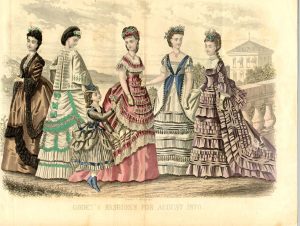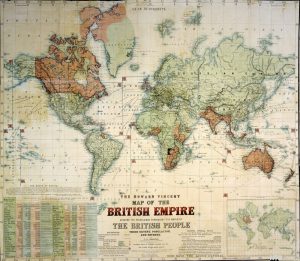 British Empire was, undoubtedly, the greatest empire world has ever seen. Britain was the topmost global power for more than a century. In the 15th and 16th century English and Scottish people started establishing colonies overseas and among many reasons, the main were trade and financial benefit. Starting with North America and the Caribbean the colonialization spread to Africa and Asia.
British Empire was, undoubtedly, the greatest empire world has ever seen. Britain was the topmost global power for more than a century. In the 15th and 16th century English and Scottish people started establishing colonies overseas and among many reasons, the main were trade and financial benefit. Starting with North America and the Caribbean the colonialization spread to Africa and Asia.
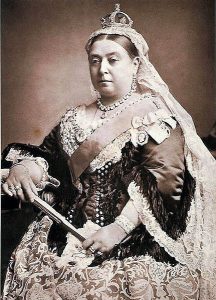 Queen Victoria, one of the longest reigning British monarchs, was 63 years on her throne. This is the reason why from 1837 to 1901, the period is known as Victorian Era. These were also the peak years of the British empire.
Queen Victoria, one of the longest reigning British monarchs, was 63 years on her throne. This is the reason why from 1837 to 1901, the period is known as Victorian Era. These were also the peak years of the British empire.
The Empire
During the Middle Ages Britain was moderately wealthy country. When the New World was discovered, with its naval advantage, Britain started establishing colonies. Starting with trading companies they established colonies wherever they sought a foothold. After becoming the world power, they exported groups of people to populate different parts of the world. One of the trading company of high importance was the East India Company, founded in 1599 and secured India as a colony.
During the industrialisation of Britain, the colonies were the supplier of cheap raw materials to their industries. Britain ruled about one-fourth of the world in both, land and people. The industrial revolution, that started in the 1700s, saw Britain as the cradle. When Queen Victoria was reigning, Britain had become the richest country in the world due to industrialisation. It was after 1900 that USA and Germany caught up with the race.
Even though there were few conflicts here and there, Victorian era is considered as the Golden Era of the Empire. During this time the ports were full with ships carrying possessed goods from far and wide which were sold making Britain a wealthy country. The first World’s Fair, The Great Exhibition, in 1851 was celebrated with wide selection and richness of the Empire.
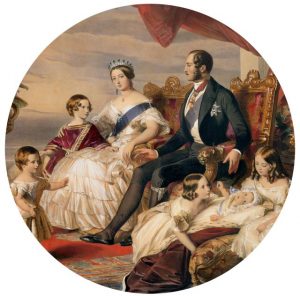
Victorian Society
Just like other industrial societies, British society saw remarkable changes during this period. The Victorian society was a divided one.
Working class
A special class of people called the working class emerged as more and more people started moving to cities from farms to work in factories. Cities saw poor and overcrowded accommodations which lacked sanitation and even the working condition was also unregulated and sometimes dangerous.
Middle class 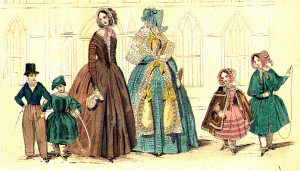
A new group, middle class, emerged that included factory owners, proprietors, and businessmen. Most of these men were hardworking and frugal, living in moderate luxuries accessible at that time. This class could read and write as well as afford to buy newspapers, magazines, books and novels.
At the bottom
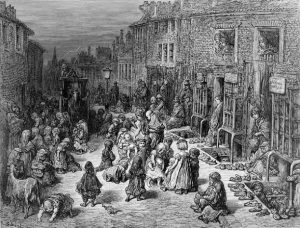 At the bottom of the society were people who were unemployed and lived in slums. Many turned out criminals like pickpockets, thieves and prostitutes.
At the bottom of the society were people who were unemployed and lived in slums. Many turned out criminals like pickpockets, thieves and prostitutes.
The division of the society during Victorian era continues to be more or less the same even today. As far as the British Empire is concerned, it continued with the acquisition of territories and trading consignments during this period. When the Empire was still at its height, growing nationalist movements in different parts increased and the process accelerated after the World War I.
The Decline of British Empire: Reasons
The decline of the British Empire started in the early part of the twentieth century. With many more reasons, the prime reason was that Britain lost the supremacy in military and navy. After the World War II, Britain was no longer capable of financially supporting its empire as it had now, a legacy of debts and affording an Empire was not possible. The United States had grown in power, wealth and population and with Russia, it was considered as a superpower in the world.
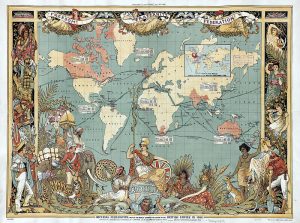
British Empire gave the world a huge legacy of developing nations and taught them democracy. They provided a structure leading to self-governance. The subject is vast, but the purpose of this website is to provide a brief synopsis.
